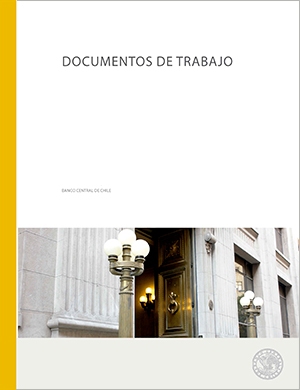Working papers N° 481: Business Cycles and Fiscal Policies: the Role of Institutions and financial Markets
Publications
Working papers N° 481: Business Cycles and Fiscal Policies: the Role of Institutions and financial Markets
Autor: César Calderón , Klaus Schmidt-Hebbel
Description
Macroeconomic policies are designed to stabilize business cycle fluctuations. Usually, fiscal and monetary policies in industrial countries have been expansionary in response to weak domestic conditions. However, the cyclical properties of fiscal policies are a much more disputed issue among emerging market economies. Several researchers have attributed these differences in cyclical behavior to: (a) factors associated to a weak institutional framework that play a key role in explaining sub-optimal policy decisions, and (b) factors associated to weak integration (or access) to either domestic or international financial markets. The goal of the present paper is to empirically evaluate whether the ability of countries to conduct countercyclical fiscal policy is affected by the quality of their institutions and/or by the availability of financial resources either in domestic or international capital markets. Our empirical evaluation yields a more nuanced interpretation to the existing evidence: (1) countries are unable to conduct counter-cyclical fiscal policies if they have poor institutions or lack wide access to credit markets at home and abroad, and (2) institutional factors have a larger weight than financial variables in explaining the differences in cyclical behavior of fiscal policy between industrial and developing countries.
Working papers N° 481: Business Cycles and Fiscal Policies: the Role of Institutions and financial Markets
Boxes and graphics

